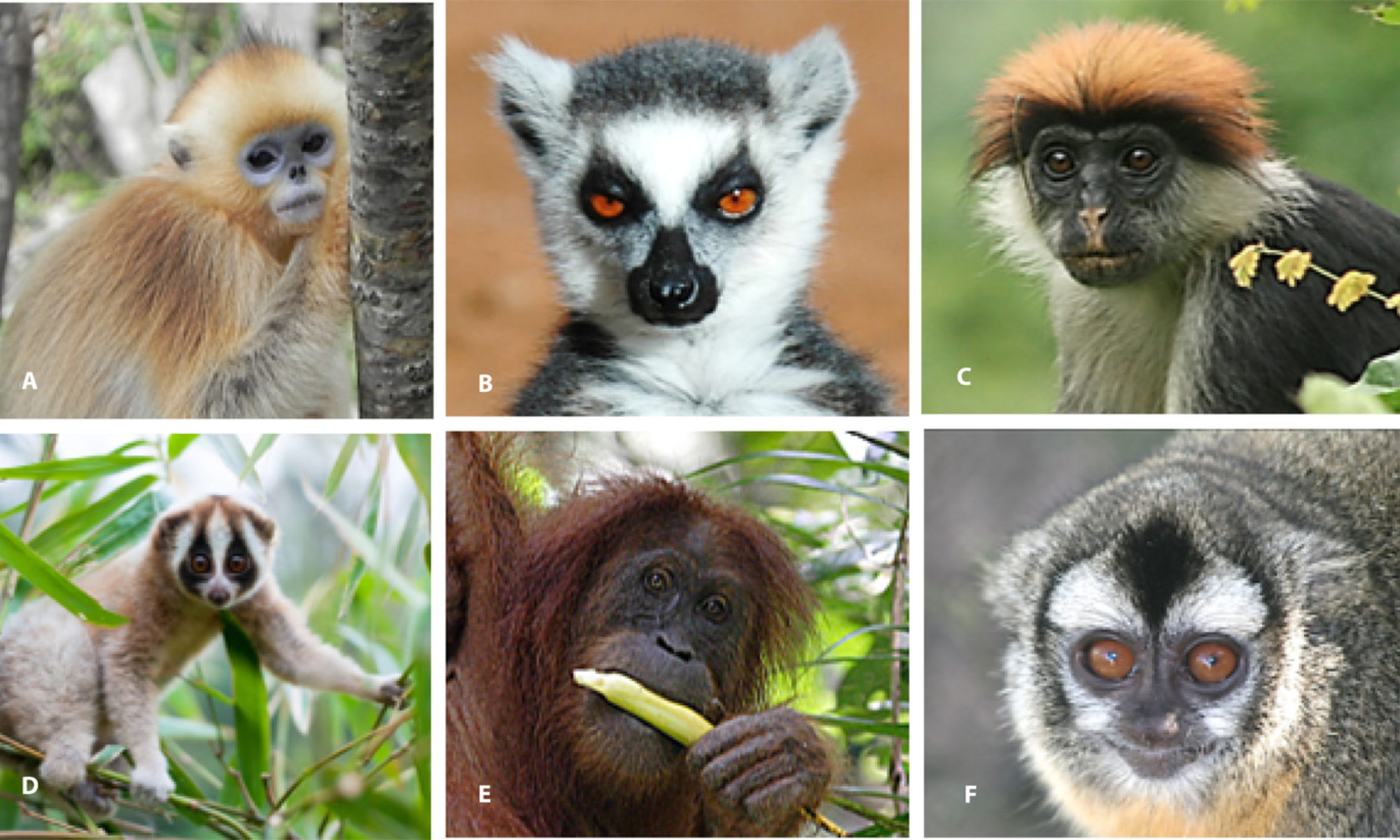In my group, Protect the Primates, I noticed linguistic differences and modes of expression during our project. I have different background with my group member. I did my primary school in Africa and I also speaks two different languages, French and Wolof. As the result, I usually translate my expression in those language to English to communicate ton them. Therefore, sometimes they have a difficult to understand me. It usually happens verbally when we exchanged ideas about the assignments. Fortunately, we usually take our time to make sure that we understand each other.
The act of reviewing the work we did in class helped me a lot and added knowledge to my revisions. English is my fourth language and I am still learning it, so in my writing, I have difficulty to pattern words and sentences correctly or sometimes I lacked vocabulary to express myself. More importantly, I usually make grammar mistakes. As the result, the peer review helped me solve most of these issues and improved my vocabulary because I often learned new words by taking, revising or editing with my peer.
In my literature review, we did write a lot of information with their details to make sure that we shows the readers that we know what we were researching about.. For example, our topic was Protect the Primates, so, we wrote many different aspects or sections on it: the history of the primates and their connection with humans, human activities that affect primates, primates in endangered and causes leading to it, and how to protect the primates, solution and methods. Basically, we covered everything on primates in our literature review. Oppositely to our presentation, our audience played a big role in our work, because we wanted to make sure that the audience get the message easily. For example, in our infographic, we focused only in the causes and solutions for deforestation because it the main cause for primates endangered and also targeted our audience, college students. The connections we made between college students and deforestation were: cutting down trees to make papers lead to deforestation, applying 3Rs to papers use helps reduce deforestation, and motivate students to volunteers for reforestation.
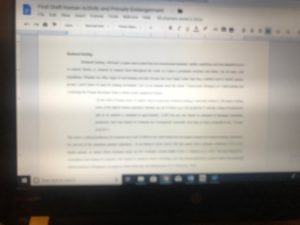
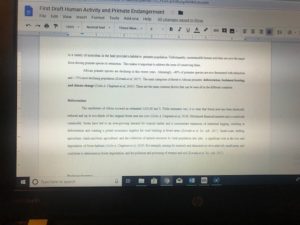
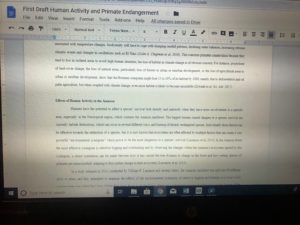


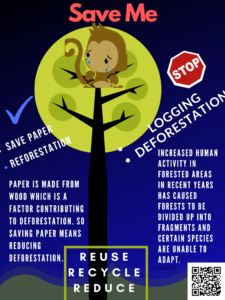
In our group, we did develop methods of collaborating with each other. First, we exchange phone numbers which facilitated our communication. We created a group chat and it is use because we became friends now not just team member. We used to set our appointment or discussed together by the group chat. Here are some examples:
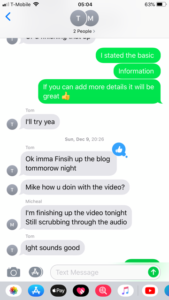
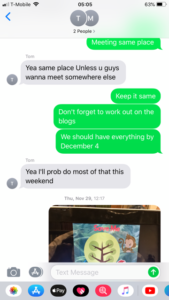
I did gain more knowledge about how to use the CCNY Library Website during this project. I learned lot about primary articles, how to find them and check their credibility, hows to analysis articles through discussion with my group member. We used google docs and group chat to exchange ideas.
In my writing, I did formulate and articulate a stance though the process. I did give my point of view in some subject that should be changed or improved. Here is an example from my paper:
“Beyond sharing a close evolutionary history with humans, primates contribute importantly to the biological and cultural richness and the natural heritage of the countries in which they occur. As primates become locally rare or extinct, we risk losing complex ecological, social, and cultural relationships that have developed between humans and primates over millennia (Estrada et al. Sci. Adv. 2017). As discussed above, primate species richness is strongly correlated with the extent of of close forest cover across African countries. Primates comprise between 25 and 40% of frugivore biomass in tropical forest (Colin A. Chapman et al, 2016). In order to advance conservation efforts in Africa will based on: political and socio-economic and introducing new models.”
I used the CCNY library databases to do my research. Our topic, Protect the Primates, was to broad, so I had difficulty to find choose specific sources needed. To solve that, I applied the filtration, meaning selecting only the range of dates, region, and other aspects that help reduce the results. For example, this source below, I found it one search at CCNY Library, then I look to the database and typed the keyword “Primate in Africa”. There were lot of article but i wanted to focus one cause and effect of primates endangered, so i looked for those are related, then i read their abstracts to get ideas on them. Finally, I look look how many people cited the articles to checked for credibility.
“Impact of Gun-Hunting on Monkey Species and Implications for Primate Conservation on Bioko Island, Equatorial Guinea.” Biological Conservation, Elsevier, 22 Mar. 2016, www.sciencedirect.com/science/article/pii/S0006320716300787.
In my literature, I was required to at sources in different way. To present a credible work, I was more aware of the credibility of the sources. Aslo, I was aware about bias or propaganda about the sources because I did not want to mislead people.
